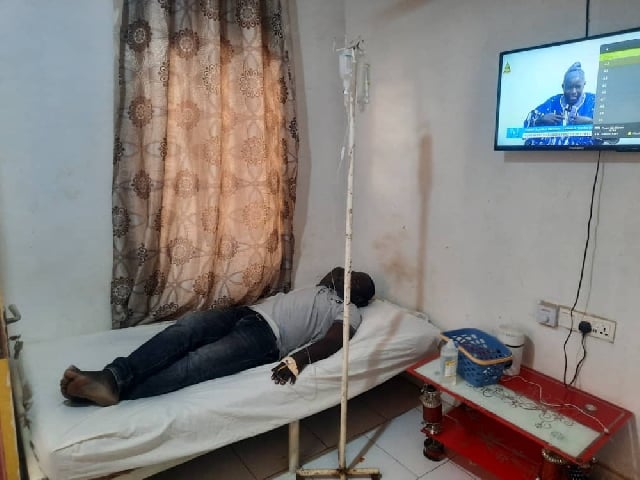The New Patriotic Party (NPP) in Ghana’s Offinso South Constituency has been rocked by an internal conflict resulting in the physical assault of the Constituency Secretary, Nsiah Boakye Andrews. The alleged perpetrator is the Constituency Chairman, Joe Sala, who, accompanied by a group of individuals, is accused of attacking Mr. Boakye Andrews at the NPP Constituency office. The incident, stemming from a dispute over a party-branded vehicle, highlights deeper tensions within the party’s local structure and raises questions regarding internal discipline and resource management. The altercation has sparked calls for a comprehensive investigation to determine the exact sequence of events, establish accountability, and implement measures to prevent similar incidents in the future.
The central issue in the dispute revolves around a new pickup truck provided by the NPP national executives during the 2024 general elections. Intended for campaign purposes, the vehicle became a point of contention after the election concluded. Party leadership requested the return of the vehicle, a standard procedure for managing resources allocated for specific campaigns. However, Mr. Boakye Andrews, the Constituency Secretary, allegedly refused to comply with this directive, triggering a chain of events that culminated in the violent confrontation. The refusal to relinquish the vehicle suggests a potential breakdown in communication and authority within the constituency’s party structure, possibly indicating underlying disagreements regarding resource allocation and control.
The situation escalated when Chairman Joe Sala and his associates reportedly locked the party office, effectively trapping Mr. Boakye Andrews inside. This action transformed a disagreement over vehicle possession into a more serious confrontation, escalating the tension and creating an environment conducive to violence. The subsequent physical assault resulted in significant injuries to Mr. Boakye Andrews, requiring medical treatment at a local hospital. The incident underscores the potential for internal party disputes to escalate into physical violence, highlighting the need for robust conflict resolution mechanisms and a clear chain of command within the party structure.
The attack on Mr. Boakye Andrews has reverberated through the NPP, drawing attention to the potential for internal conflicts to disrupt party unity and undermine public trust. Party members and observers have voiced concerns about the incident, calling for a thorough investigation to uncover the full details and hold those responsible accountable. A transparent investigation is crucial not only to address the immediate situation but also to send a clear message that violence and intimidation will not be tolerated within the party. Such an investigation should examine the root causes of the dispute, including the circumstances surrounding the vehicle’s allocation and the subsequent refusal to return it.
Beyond addressing the immediate incident, the investigation should also consider broader questions regarding internal party dynamics and resource management. This includes reviewing the procedures for allocating and retrieving party resources, as well as establishing clearer guidelines for resolving disputes. Implementing stronger conflict resolution mechanisms can help prevent similar incidents in the future and foster a more cohesive and collaborative environment within the party. Moreover, the investigation should address any potential power imbalances or factionalism within the constituency that may have contributed to the escalation of the dispute.
The incident serves as a reminder of the importance of maintaining discipline and order within political parties. Internal conflicts, if left unaddressed, can escalate into violence, damage the party’s reputation, and erode public trust. The NPP’s response to this incident will be crucial in demonstrating its commitment to internal accountability and its ability to effectively manage internal disputes. By conducting a thorough and transparent investigation, implementing necessary reforms, and holding those responsible accountable, the NPP can take steps to restore confidence and ensure that such incidents do not recur. This will not only strengthen the party internally but also reinforce its commitment to peaceful and democratic processes.














